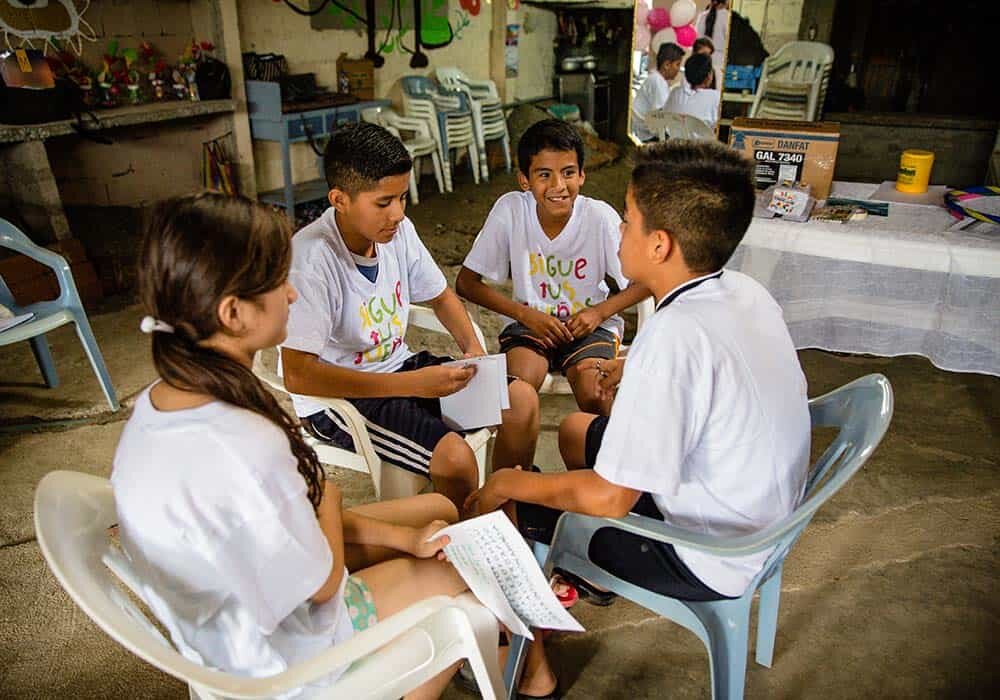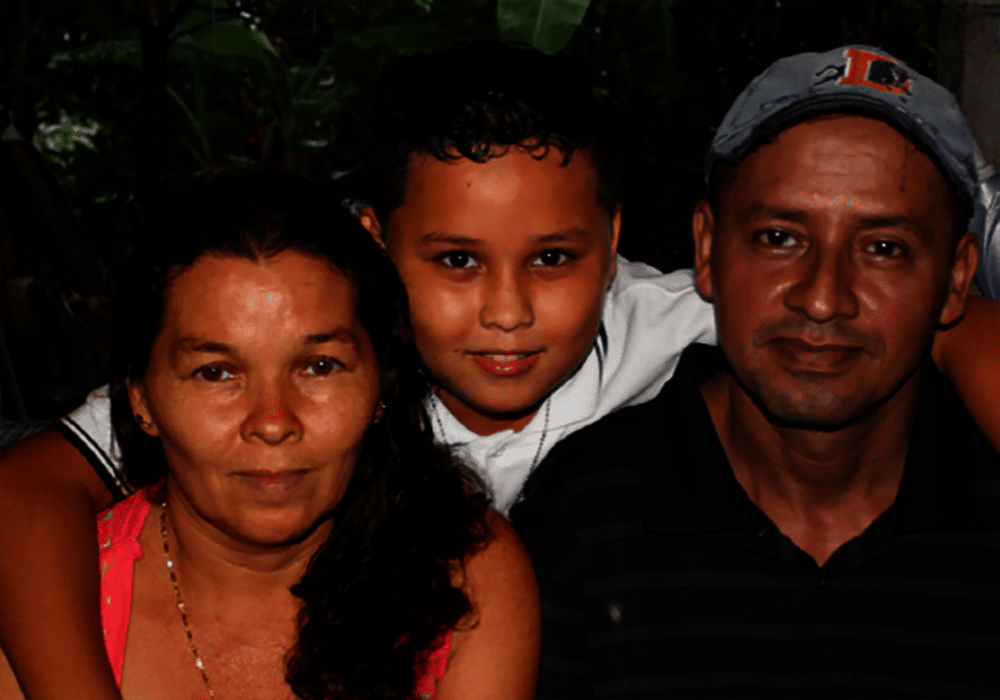By Kerri Whelan | Plan Writer
When you think about gender equality and the organizations that are fighting for its progress, you might wonder: “Well, what about the boys and men who need our help?”
It’s an important question to ask — so, let’s get into how boys and men fit into girls’ and women’s rights.
First, it’s important to address that the gender equality movement unequivocally involves boys and men. Gender equality means that all genders and gender identities should have equal rights and opportunities. While the rights of girls and women are significantly held back in unique ways across the world (which we’ll talk more about later), boys and men are also negatively affected by gender stereotypes.
Traditional gender norms tell boys that they should be tough, unemotional and dominant. When they suppress their emotions, many boys may go on to develop mental health issues like anxiety, depression and anger. They’re forced to fit into the confines of toxic masculinity and an identity that doesn’t allow them to be who they really are. And for boys living through war and conflict, this traditional way of thinking can even manifest itself in being recruited as child soldiers.
We also know that to achieve gender equality, a lot of work still needs to be done for girls and women. Girls and women are disproportionately affected by violence, like forced child marriage, human trafficking and domestic abuse.
Also, getting an education as a girl is much more difficult than for boys — in low-income households, many parents choose to send their sons to school and keep their daughters at home to help with household duties. When you ask them why they made this decision, many will refer back to the traditional gender norms they grew up with: It’s a man’s job to work, and it’s a woman’s job to take care of the house. You don’t need to go to school for that. With stereotypes like these, around the world, 130 million girls are being denied the right to an education.
It doesn’t stop there. For young women, gender biases create huge hurdles in finding decent work with equal pay, despite their qualifications. Women also continue to be underrepresented in political and leadership roles around the world, which results in policies that may not fully address women’s needs. Plus, women have less access to the health care they need — from period products to contraception.
There is so much progress that needs to unfold for girls and women, and that’s where boys and men come in! People of all gender identities play a vital role in holding each other accountable, challenging stereotypes and supporting girls and women.
At Plan International USA, involving boys and men is a big part of our work. We are a girls’ rights organization, working in communities across the world to fight gender inequality and address girls’ unique needs. We focus on adolescent girls because they are uniquely vulnerable: Between programs for “children” or “women,” they often fall through the cracks. But they still have to bear the full weight of the challenges that face both groups.
We don’t choose to focus on girls because they definitively have the most needs of all people — there are absolutely issues that uniquely affect boys, men and people of other gender identities, and those are just as important. Plan focuses on girls because their needs are the ones we are best positioned to address and make the most impact on. We have specific expertise gained from years of working with families and communities, witnessing how gender inequality affects us all, and this is where we can do the most good.
We strive to create a better world for all children, in all their diversity. And by uplifting girls, we are also helping boys.
Here’s how: Gender equality and female empowerment are fundamental to the realization of human rights. Experience and research have shown clear links between achieving gender equality, fulfilling children’s rights and ending child poverty. Investing in a girl’s future will not only improve her life, but also the well-being of her family and her entire community.
A perfect example of how Plan’s work positively impacts boys and men is the story of a young boy in El Salvador named Toñito. Toñito participated in Plan’s Champions of Change program, learning about gender equality and positive masculinity. Like so many of the children we work with, he brought what he learned home to his family.
One day, Toñito was at home with his dad, Oscar, and they were hungry. But they couldn’t eat. Not because they didn’t have food, but because Toñito’s mom wasn’t home. For the first time in Toñito’s 11 years of life, that seemed weird. Why couldn’t his dad cook?
“Porque no soy mujer,” his dad, Oscar, said to Toñito. “Because I am not a woman.”
So, Toñito did something amazing: He taught himself how to cook. And he and his father ate together.
It’s so incredibly simple, yet so incredibly monumental at the same time. This little boy easily subverted a rigidly defined gender role that’s existed probably since the dawn of time. He simply sized it up and pushed it to the side.
Obviously Toñito did not defeat the entire culture of toxic machismo in El Salvador in a single blow. This is one child, in one family, in one community. But it’s a start. And luckily, when Toñito challenged the norm, his father didn’t feel defensive or threatened, or lash out at his son. He listened.
Children like Toñito are why we do this work. When you support Plan, you support girls, and you help boys see that girls are their equals. You help boys see that they can transform the way that girls and women are treated and transform the way they feel about themselves. You make it possible for girls to reveal to their communities that they can thrive in unexpected ways and break gender norms. You create a more equal future for everyone.
Project reports on GlobalGiving are posted directly to globalgiving.org by Project Leaders as they are completed, generally every 3-4 months. To protect the integrity of these documents, GlobalGiving does not alter them; therefore you may find some language or formatting issues.
If you donate to this project or have donated to this project, you can recieve an email when this project posts a report. You can also subscribe for reports without donating.
Support this important cause by creating a personalized fundraising page.
Start a Fundraiser
